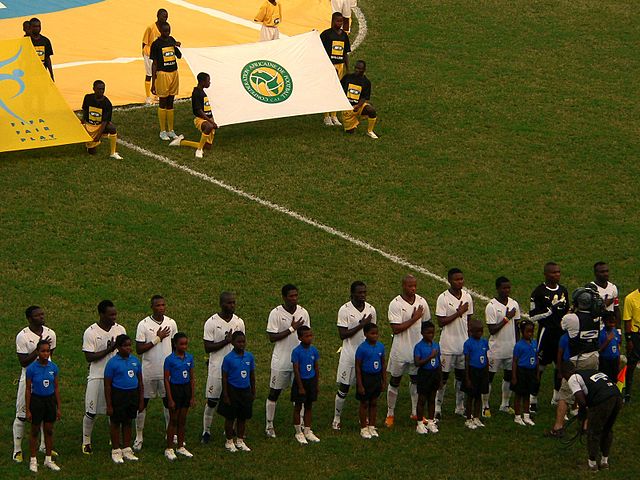Ghana: ‘The Black Stars’ at Rock Bottom
The 18th of January marked a new low point for the Ghanaian national team. Eliminated from the African Cup of Nations group stage for the first time since 2006, a loss to tournament newcomers, Comoros, ended the Black stars hunt for a first AFCON title in forty years. With a World Cup playoff against rivals Nigeria in March, Ghanaian football is in a state of crisis.
In the decade following their heart-breaking quarter-final exit of the 2010 World Cup, Ghana have reached four AFCON semi-finals, yet in this period there has been a steady decline.
The 2014 World Cup campaign was an embarrassing affair, with senior players Sulley Muntari and Kevin Prince Boateng leading a strike over bonus payment. The Ghanaian FA fulfilled their demands, but this did not result in positive performances on the pitch, exiting the tournament without a win.
Muntari and Boateng were suspended by the GFA and gradually the spine of the 2008-12 team, such as Michael Essien, Asamoah Gyan and Stephen Appiah, retired on their own terms. Only Andre Ayew remains from the team that shocked the world in South Africa.
Despite losing this spine, talent is an area where Ghana do not lack. As a collective, the current team is strong. Prior to AFCON, there were hopes of a deep run, with winger Kamaldeen Sulemana and midfielder Kofi Kyereh in top form for their club sides. Even with the likes of Mohammed Kudus and Salisu being absent from the squad, there is hope that under the correct guidance, a new promising generation can achieve where their predecessors failed.
Whilst there is hope for the future, coaching and political hurdles are obstructing Black Stars from reaching this potential. Coach Milovan Rajevac’s second stint as national team coach was justifiably ended after dire performances at AFCON and the preceding World Cup qualifiers, only reaching the playoffs due to a questionable refereeing call.
Rajevac or “Milo” as affectionately known in Ghana, initially managed the Black Stars between 2008 and 2010. He led the team to the final of AFCON in 2010, losing to Egypt and then their famous World Cup run. During this time, he became known for a pragmatic approach effectively ensuring results.
However, upon his return, Rajevac’s tactical approach had become extremely conservative, highlighted in the 1-1 draw v Gabon. Ghana dominated yet created no clear-cut chances, eventually succumbing to a late equaliser. It was a sad indictment that Ghana’s best football in the tournament was played following captain Andre Ayew’s dismissal versus the Comoros. Despite a visual improvement, their two goals and only real chances came from Kyereh set-pieces and speculative long shots, not good enough for a team ranked 52nd in the world compared to their opponent’s 132nd ranking.
In recent years, The Ghanaian FA has been mired in controversy. Dissolved in 2018 amid the uncovering of institutional corruption, the new administration is yet to gain the nation’s trust. Successive poor coaching appointments and an inability to attract high-profile Ghanaians in the diaspora to the team has left the Ghanaian Sports Ministry demanding improvements.
It was only four months ago when the GFA reappointed Rajevac after sacking Charles Akonnor. Milo was brought in for his understanding of Ghanaian football, implementing a tactical structure, yet in reality, there was no improvement from his predecessor.
For the Blacks Stars to return to the top, the GFA and their new coach must implement a whole new structure
Blame was placed on the lack of time with the team, but this was no excuse for such abject performances. Nigeria made a managerial change even closer to the tournament’s eve and saw instant results (at first). Ghana’s tactical failures didn’t come from a lack of preparation, more so the lack of any interest to attack from the coach.
For Ghana to return to the top of African football, the team requires a true tactical identity, rather than the trial and error approach which has restricted the team for many years. With countrymen Derek Boateng, Otto Addo, and Chris Hughton linked to takeover, Ghanaians can only hope that after such great disappointment, the team can respond positively against Nigeria in March.
Realistically, the World Cup playoff may come too soon, but for the Blacks Stars to return to the top, the GFA and their new coach must implement a whole new structure, to ensure this fallen giant of African football can fulfill its potential.

Comments